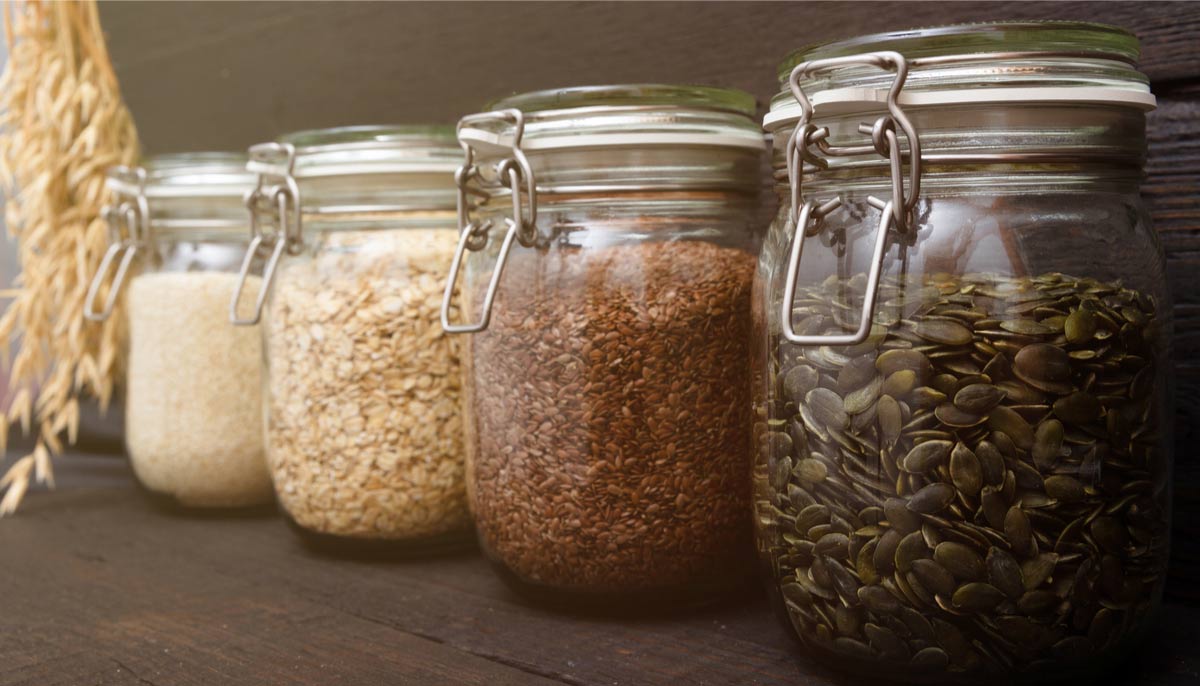Shutterstock
In the wake of the COVID-19 virus, trying to eat healthily can be a challenge. Stocking up on fresh fruits and veggies is great–but they’ll only be edible for so long.

The good news is, there are plenty of non-perishable foods you can keep in the pantry that will allow you to continue eating healthily even if you can’t get to the store.
Beans are one of the best items to keep on hand. They are so versatile you can put them in just about anything. Add them to soups, grain bowls or salads, eat them plain, or turn them into healthy dips.
Beans are an excellent source of fiber, magnesium, B vitamins, plant-based protein, iron, manganese, iron, zinc, phosphorus, copper, and more.
When you don’t have the option for fresh, dried, canned or frozen fruits and vegetables are a great alternative. Most dried fruit can be stored for up to a year, and dried vegetables will last anywhere between eight and ten months.
Canned vegetables can last even longer, but the shelf-life depends on what type you get. Potatoes, carrots, spinach, and beets are low in acid and can last as long as two to five years. High-acid fruits such as pineapple, peaches, apples, and berries will last around 12-18 months.
When buying canned fruit, ensure that is packed in water or 100% fruit juice. Buying canned foods packed in heavy syrup will add a lot of extra, unnecessary sugar to your diet. Always opt to buy low or reduced-sodium as well.
You can keep most granola and protein bars fresh for up to a year. These are healthy snack options that won’t take up a lot of room in the pantry and make an excellent snack to grab and go–or, in the case of quarantine, to grab and stay. Protein bars are an ideal snack to eat after your home-based workout, too!
Related: Bodyweight Workouts You Can Do At Home
When buying, check the ingredients and ensure the bars you choose aren’t packed with a ton of sugars and artificial ingredients.
Whole grains such as rice, oats, and barley have a shelf-life of around three to six months and can be used in casseroles, salads, soups, or eaten all by themselves.
They are also thought to reduce your risk of heart disease, certain cancers, and type 2 diabetes. Honestly, we should all be eating more whole grains.
It’s important to store your extra supplies properly. Most non-perishable foods should be stored in a cool dry place, but check the packaging instructions to ensure your foods last as long as they should. Choose airtight, reusable containers such as glass or BPA-free plastic rather than leaving dry goods in their original bags or boxes.